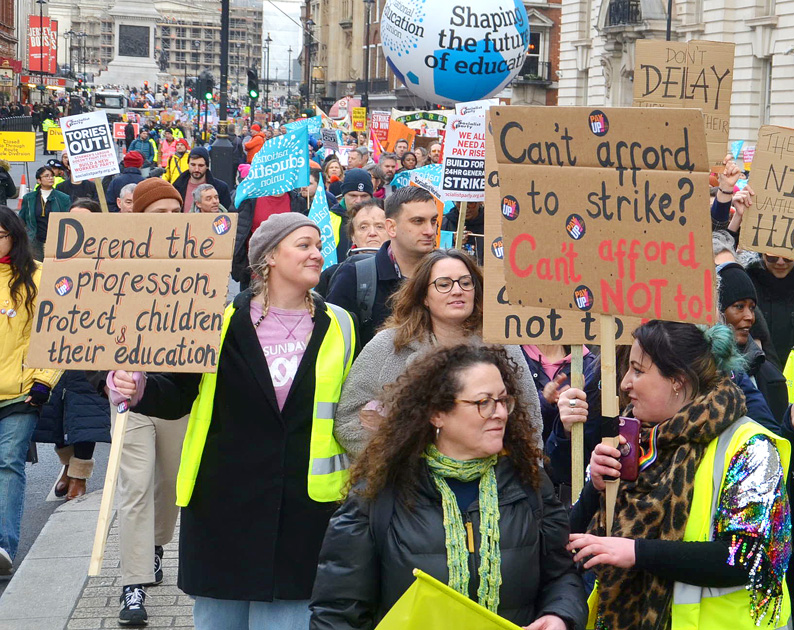
THE BANK of England has raised interest rates to their highest levels in almost 15 years.
The base rate has risen from 4.25% to 4.5% – the 12th successive raise in a row.
The Bank has been raising rates in an attempt to lower inflation – the rate at which prices are rising.
Rising interest rates mean monthly payments on some mortgages, loans and credit cards will go up – though the rich will earn more money on their savings.
High inflation, largely driven by the soaring cost of energy, and NATO’s Ukraine war pushed prices up leaving most people struggling with the cost of living
Two members of Bank’s committee opposed a rate rise. Seven of the nine members of the Bank of England’s Monetary Policy Committee have voted to increase the base interest rate from 4.25% to 4.5%.
They said there had been ‘repeated surprises about the resilience of demand’ and that inflation had been stronger than expected as the prices of food and other goods were higher.
The remaining two members of the committee wanted to keep rates unchanged, saying that inflation was already expected to fall considerably this year.
They also said a lot of the impact of rising rates had not yet come through into the economy. The Bank estimates that around a third of the impact of rates increases has been passed through.
The Bank of England predicts the UK economy will perform better than expected this year, but households will be stuck with higher food prices for longer.
The bank admitted it will take longer for inflation to fall, due to food prices remaining elevated.
The bottom line here is that this is a recipe for at least a further rate rise next month.
As well as increasing interest rates 12 times now to an almost 15-year high, the Bank of England has outlined ‘on the downside, inflation hangs around like a bad smell well into next year, falling notably more slowly than expected’.
The increase to the bank’s base rate from 4.25% to 4.5% means rates are now at their highest level since the height of the global financial crisis in October 2008 when several banks collapsed, almost 15 years ago.
The rise is likely to heap further pressure on many households struggling with the cost of living.
It will mean higher mortgage payments for some homeowners, while people looking for loans will face higher borrowing costs. However, high interest rates can benefit savers.
CPI inflation was 10.2% in 2023 Q1, higher than expected at the time of the February and March MPC meetings, with the upside surprise concentrated in core goods and food prices. Although still elevated, nominal private sector wage growth and services CPI inflation has been close to expectations.
However, food price inflation is likely to fall back more slowly than previously expected.
UK monetary policy framework recognises: ‘There will be occasions when inflation will depart from the target as a result of shocks and disturbances. The economy has been subject to a sequence of very large and overlapping shocks.
‘Monetary policy will ensure that, as the adjustment to these shocks continues, CPI inflation will return to the 2% target sustainably in the medium term.’
It adds: ‘The pace at which domestic inflationary pressures ease will depend on the evolution of the economy, including the impact of the significant increases in Bank Rate so far. Uncertainties around the global financial and economic outlook remain elevated.’
The Committee concludes: ‘The MPC will continue to monitor closely indications of persistent inflationary pressures, including the tightness of labour market conditions and the behaviour of wage growth and services price inflation.
‘If there were to be evidence of more persistent pressures, then further tightening in monetary policy would be required.’